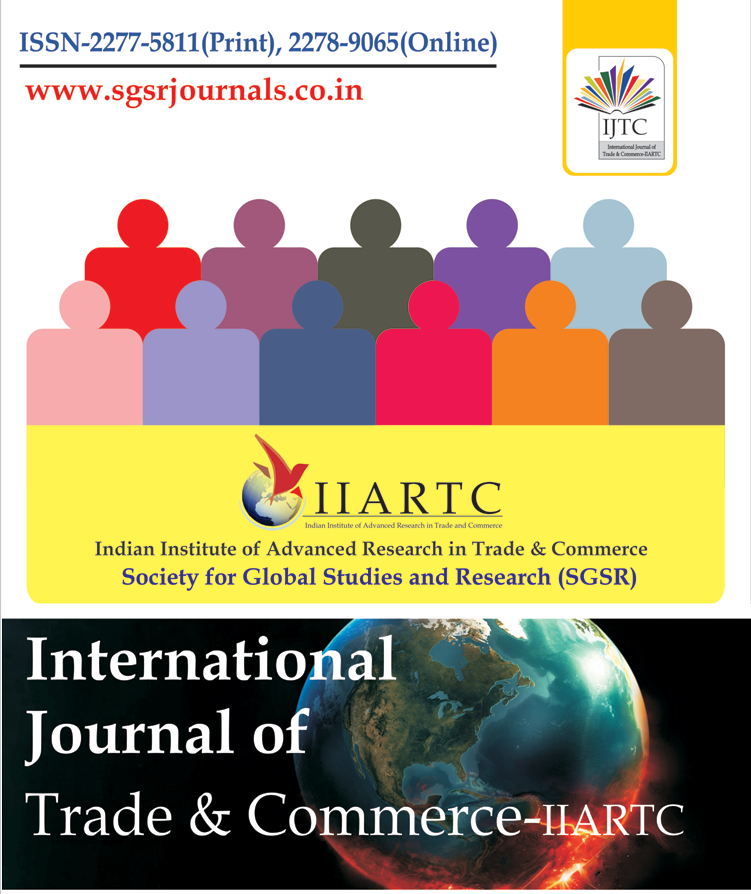Home ⇨ International Journal of Trade & Commerce-IIARTC

International Journal of Trade & Commerce-IIARTC
Impact Factor (IF):5.135 (COSMOS), IF:7.249 (ISRA), IF:3.721 (ISI)
ISSN:2277-5811 (P), ISSN:2278-9065 (O)
Frequency: Half Yearly
Nigeria: The Challenges and Prospects of Intelligence Education, Training and Development in Non-Military Universities
Post 9/11 global security realities have expanded new frontiers that greatly demystified the hitherto nebulous and extreme covert training of security and intelligence agents all over the world. Reeling from the collapse of the cold war and the nagging reality of existential global security threats looming all over the world, progressive minds saw the need for the liberalization of intelligence education and training within the ambit of collective security and democratisation of intelligence management for effective and sustainable national security and public safety. This provided the needed space for non-military universities to run academic programmes in intelligence studies. Led by the United States of America, Nigeria joined this global band wagon with the approval of Intelligence and Security Studies programmes for two non-military universities-Novena University and Afe Babalola University. This work is, therefore, a synoptic analysis of this new reality in a country faced with monumental public safety and national security threats from terrorism, insurgencies and massive threats of insecurity from non-state actors within a large ungoverned space. Baring all the existential challenges, the authors believe that intelligence education has come to stay in Nigeria, while it is hopeful that a generalist approach will lay the needed foundation for this rather new and dynamic discipline.
Author:Awwal Isaa, Ngboawaji Daniel Nteb*
Abstract:Post 9/11 global security realities have expanded new frontiers that greatly demystified the hitherto nebulous and extreme covert training of security and intelligence agents all over the world. Reeling from the collapse of the cold war and the nagging reality of existential global security threats looming all over the world, progressive minds saw the need for the liberalization of intelligence education and training within the ambit of collective security and democratisation of intelligence management for effective and sustainable national security and public safety. This provided the needed space for non-military universities to run academic programmes in intelligence studies. Led by the United States of America, Nigeria joined this global band wagon with the approval of Intelligence and Security Studies programmes for two non-military universities-Novena University and Afe Babalola University. This work is, therefore, a synoptic analysis of this new reality in a country faced with monumental public safety and national security threats from terrorism, insurgencies and massive threats of insecurity from non-state actors within a large ungoverned space. Baring all the existential challenges, the authors believe that intelligence education has come to stay in Nigeria, while it is hopeful that a generalist approach will lay the needed foundation for this rather new and dynamic discipline.




